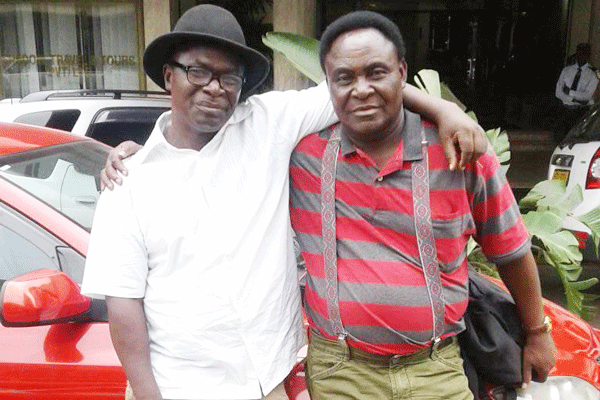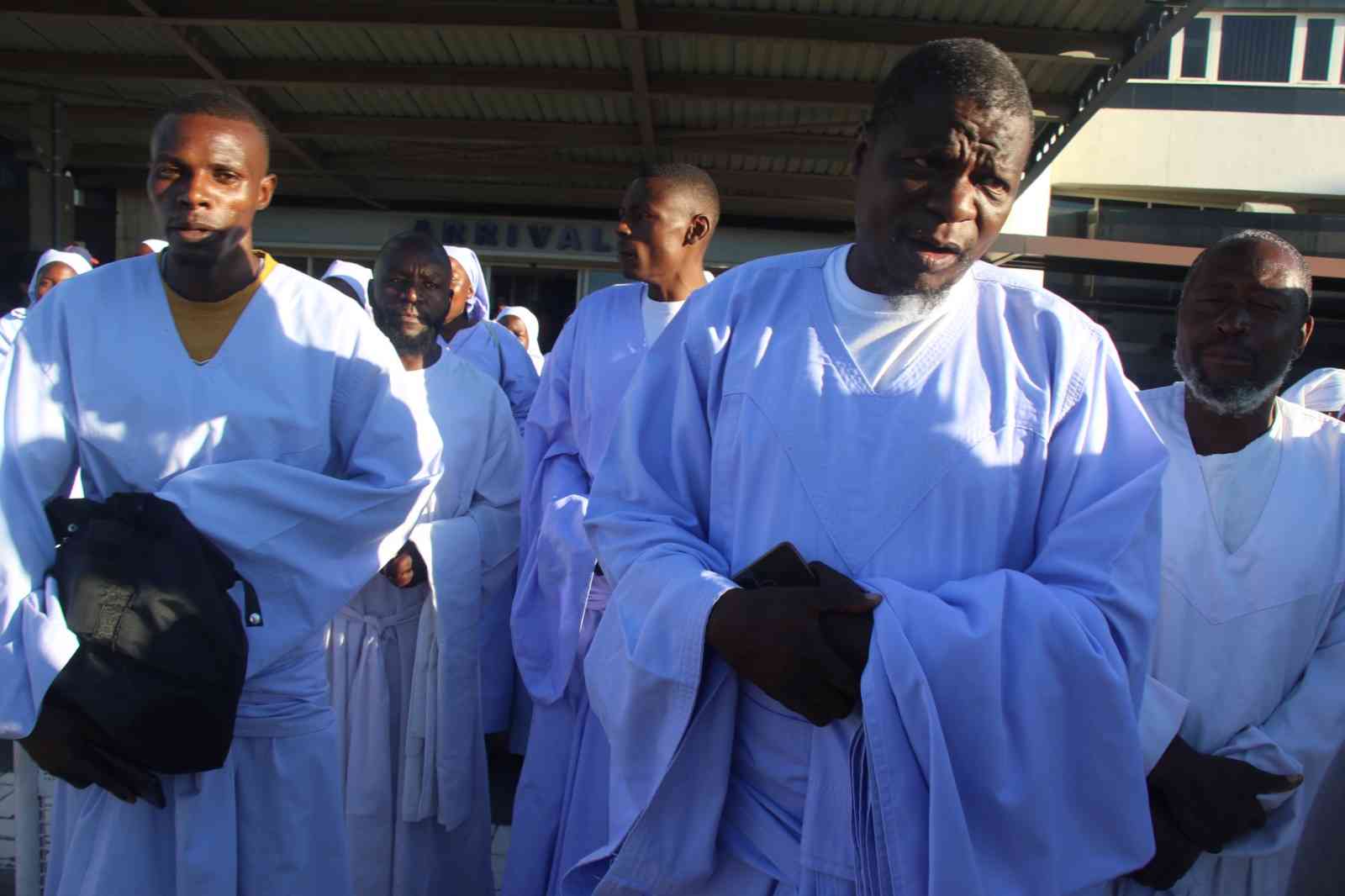
Sometimes I am silly enough to ask questions which I eventually provide the answers for. For instance, I have asked where Jonah Moyo is when I do know where he is. Isn’t that silly? However, I cannot be as silly as the one-term and impeached United States President Donald Trump, who claims to have won the election without any evidence to that effect.
in the groove:with Fred Zindi
Jonah Moyo, younger brother of author, playwright and actor Aaron Chiundura Moyo, is one of Zimbabwe’s legendary musicians whose career with his group, Devera Ngwena Jazz Band, stretches from the late 1970s till now.
He rose to stardom in the early 1980s with hits such as Solo naMutsai and Barbara which topped the Zimbabwean charts. He is currently based in Tohoyandou, South Africa, where he and some musicians frequently perform to audiences who find his music hard to resist. He is still riding the rhythmic rollercoaster and he also still plays with elegance and fluid grace.
At Zimbabwe’s independence in 1980, almost every teenager would get their stiff limbs and numb feet into motion to Moyo’s Solo NaMutsai.
At their peak, Moyo and Devera Ngwena had the likes of Oliver Mtukudzi and Leonard Dembo as their support acts.
Moyo was born in 1955, in a family of five girls and three boys. He left school in 1971 when his parents separated and his mother could not afford to pay the school fees. He then sought and found employment as a house worker on a farm in Gweru district. In 1975 he moved with his employer to Kwekwe where he became friends with John Tagwira, a general worker for a horse owner. The two of them discovered they both loved music. They started a band using box guitars and would perform at the local railway station and in bars after work.
In 1976, he left his employment (when his employer was leaving the country) and moved in with his friend, Tagwira. One day, a friend introduced him to a band which used to play at Garandichauya Beerhall in Mbizo suburb. He joined the band as a lead guitarist. He was so good that the band manager made him the band leader. He asked to assemble his own back-up members and he took on Tagwira, a brother’s friend called Sora and a guy called Galancha. With that canopy of twittering guitars, they became the resident band at the bar. Their concerts were non-stop dancing affairs.
- Chamisa under fire over US$120K donation
- Mavhunga puts DeMbare into Chibuku quarterfinals
- Pension funds bet on Cabora Bassa oilfields
- Councils defy govt fire tender directive
Keep Reading
In early 1977 Moyo and his band members responded to a job advertisement by Gaths Mine in Mashava who were looking for people to do clerical duties, but had the unusual required extra qualification criterion of “capable musicians”. They all got the jobs and would play after work at the mine’s facilities. They played from 1977 to 1979 and during that time became known as Devera Ngwena Jazz Band (although the jazz aspect as part of the band’s genre was debatable).
In 1979 Jonah approached Harare-based Teal Recording Company and was given a recording date.
He gathered a group of musicians at Gaths Mine, among them Innocent Bitu, Patrick Kabanda Zhuwao, Jonasi Machinya and Robson Banda. Together, they recorded the song Devera Ngwena Zhimozhi which became a hit.
Moyo continued to work as a clerk at Gaths Mine and would play for the miners at month-ends. He saw this move as a way of making extra cash for himself as his full-time job including overtime did not give him enough money to make ends meet. After a successful evening during one of their month-end performances which was attended by over 500 people from the mining compound and surrounding areas, Jonah had convinced his colleagues that forming a band was a worthwhile venture. The mining authorities were also convinced that apart from the band providing recreation to the children of miners, the venture could be financially viable to the mine. As a result, a contract was signed between the band and the mine whereby it was agreed that the mine would provide musical equipment for the band in return for some of the band’s income until the equipment was fully paid for.
Moyo’s rise to stardom was now unstoppable.
The group’s music was sungura which at times was made up of a fusion of rhumba from Congo, benga from Kenya and mbaq’anga from South Africa, blended with traditional mbira-
influenced rhythms. This created a unique sound which was different from genres at that time. Moyo soon secured a recording deal with Teal Recording Company (later called Gramma Records) and their music was produced by the company’s Tony Rivett.
Between 1981 and 1989, Devera Ngwena recorded 13 albums and 57 singles, most of them selling over 100 000 copies each, thus becoming one of the best sellers the country had ever seen. A touring British reggae group, UB40, spent several hours listening to their music and later asked the band to share the stage with them at Rufaro Stadium in Harare.
Devera Ngwena Jazz Band became the first group from Zimbabwe to sell music outside the country’s borders which included South Africa, Namibia, Zambia, Botswana, Kenya, Malawi and Swaziland.
In 1986 the band suffered a major split over money issues with Moyo and Kabanda remaining the only founder members while the rest formed their own Zhimozhi band. Moyo soon recruited his brother, Joshua, and another member, Stanley, to replace those who had left the band. With this new group, hits such as Chiredzi and Masvingo Nekapeti were churned out. A year later (1987) the new band, which now included a brass section, toured the United Kingdom where their new dance music was well appreciated by British audiences. In the same year the band left the mining company which had by now lost interest in re-investing in them.
Devera Ngwena left Harare for London on May 18, 1987. Hardly stopping to breathe in the new air, the outfit were soon belting out their brand of Zimbabwean music at the Town and Country Club. The walls reverberated to the fast beat of Devera Ngwena and the heavier sounds of Johny Clegg and Savuka with whom they were sharing the stage.
All in all, Moyo and his Devera Ngwena Jazz Band performed some 45 shows in England, Scotland and Holland and found a lot of new converts on the way.
By the end of their tour, Devera Ngwena had stolen the hearts of the critics there. They stole the limelight in all the four shows they did with Johnny Clegg at the Royal Theatre in Bristol. Devera Ngwena appeared in a joint concert with a Zimbabwean great rhumba group, the Real Sounds, again at the Town and Country Club. They also shared the stage with The Bhundu Boys and Hugh Masekela at the Brixton Academy in London.
Devera Ngwena also teamed up with Ladysmith Black Mambazo at Hammersmith Odeon. Then they set Glastonbury Festival alight. Finally, they appeared before a capacity 10 000-strong crowd in Holland where they happened to be the only musical group at an annual festival.
When asked what made Devera Ngwena tick, this is what the quiet-spoken Moyo had to say:
“The audiences said the music was danceable, easy to follow and they quickly adapted to it. Some said we were way above the standards of some bands from Africa they had seen. And some critics openly told us we were better than the Bhundu Boys.” He uttered these words right in front of Biggie Tembo of the Bhundu Boys!
The name of the band caused a few difficulties out in Europe. Somehow, reports filtered back home that they were trying to change their name to the literal meaning “Follow the Crocodile”.
“Someone was being naughty,” said Jonah.
“People were asking us what the name meant and we would explain that ‘devera’ means ‘follow’ and ‘ngwena’ is a crocodile”. On return to Zimbabwe, the group became very popular in the Limpopo area of South Africa. They performed at several concerts there Their popularity was not only confined to Zimbabwe, as evidenced by their invitation to perform at the Namibian independence celebrations in 1990.
Many people feel that if Devera Ngwena had been given a decent royalty rate by their record company, they could have easily become the wealthiest band in the first 10 years of Zimbabwe’s independence.
l Feedback: [email protected]











